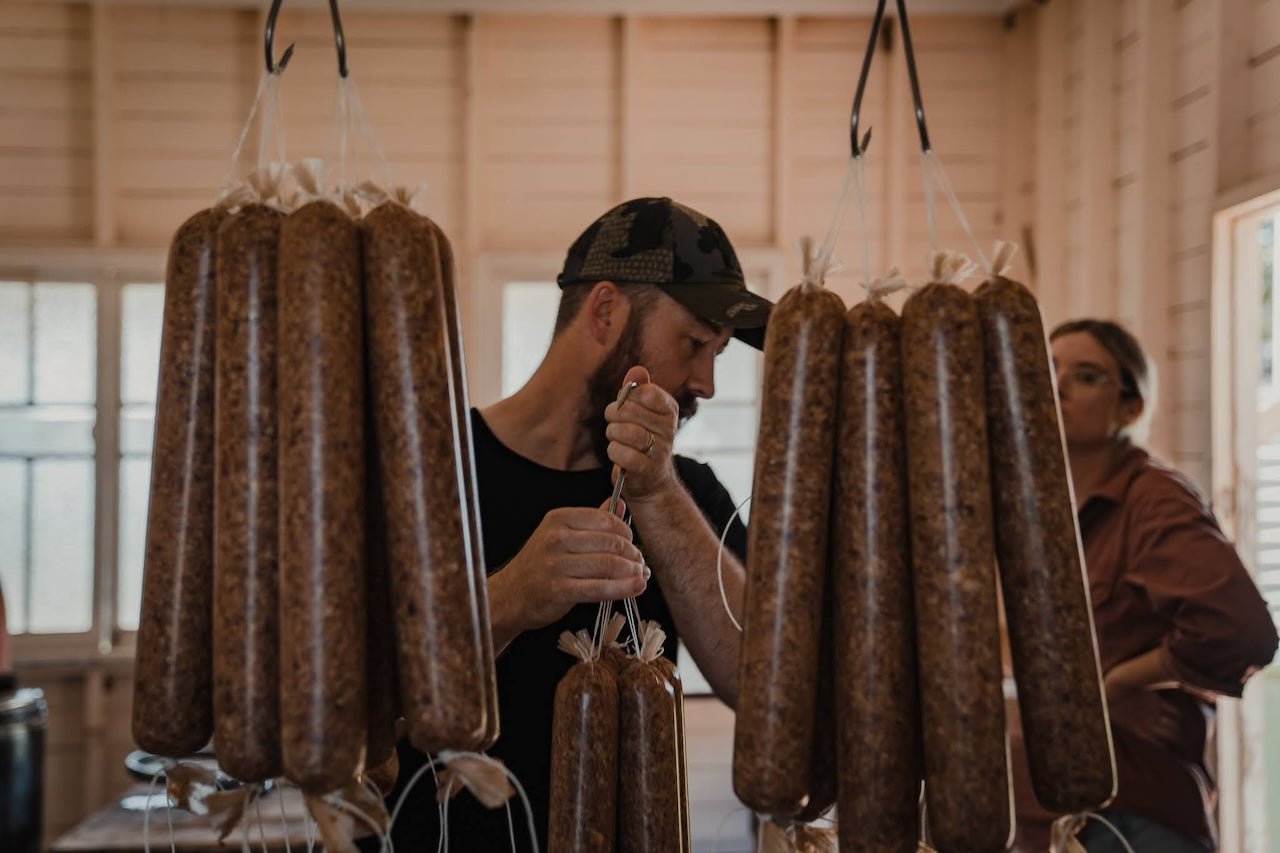✏️ Words by: Shaun Lynch
I remember the first time I watched deer grazing at the edge of a sunlit clearing. They moved with that purposeful grace that only wild creatures possess – light on their feet and completely attuned to their surroundings, stopping now and then to sniff the air as if reading the evening's unfolding story. Their coats caught the late-afternoon rays, copper flecks along the flank, each deer gliding through the grass unaware as I positioned the crosshairs on the vital zone.

I’d come to appreciate venison for its taste long before I knew about its real benefits, but its in these moments - observing animals roaming wild and free - that I understand something deeper. This isn’t just about food on the table; it’s about being a participant in nature, the way it’s been for tens of thousands of years.
If you’re new to game meat or wondering why so many hunters swear by it, here are a couple of reasons that might convince you to give it a go.
-
Clean eating
When you’re sourcing wild venison or other game, you’re bringing home animals that have lived on their own terms—out among the bush, eating what nature intended. Unlike many farmed meats, these critters haven’t been kept in pens, or pumped with hormones or antibiotics. They roam free, so what ends up on your plate is purely what the wild has provided.
In a world where store-bought meat can come with a long list of unknowns (i.e. chemical additives, antibiotics, questionable freshness, high levels of stress before slaughter), game meat offers peace of mind that you’re sidestepping much of the industrial complexity that has crept into our food supply.
It’s hard to put a price on knowing exactly what you’re eating and where it came from.

-
Game meat is a superfood
Protein is the backbone of an active lifestyle, fueling your muscles and keeping you feeling full.
Wild game meat tends to have more protein per gram than typical red meats like beef or lamb. A 100-gram serving of venison contains around 30 grams of protein and provides all nine essential amino acids, making it a complete protein. These amino acids are the building blocks your body needs for tasks like muscle repair, hormone regulation, and immune function.
Game meats tend to also be much lower in fat content, meaning a high protein-to-calorie ratio.

-
It tastes bloody amazing
After a long day in the field, sitting around a campfire with a hearty feed of venison feels both earned and deeply satisfying.
I remember experiencing this on my first solo hunt on a property near Nundle State Forest, an area ripe with fallow deer.
I’d spent hours stalking mobs of does from a distance, studying their movements but continuously missing the opportunity by either being too slow or too fast, or the wind screwing up my stalk. Eventually, I got the perfect shot at 50m on a lone yearling that came in behind me while I glassed a paddock. The moment was a mixture of shock and adrenaline, awe, and, I suppose, a real sense of responsibility. It was my first successful hunt on my own… a quick, clean kill that underscored the seriousness of taking a life for sustenance.
I packed the full deer out to the hunting cabin and that evening, I trimmed the backstrap myself, seasoned it simply with salt, pepper, and a light drizzle of oil, then set it to roast over the coals of our camp fire.
I’ll never forget it - every bite was tender, full of flavour, and brimming with the satisfaction that only comes from harvesting your own meal. You can’t explain what that feels like to somebody who hasn’t done it themselves.

-
Eating with a clear conscience
Game meats represent something that we’ve really lost as a society - connection with our food and the natural world.
Hunting for wild meat brings you face-to-face with the reality that for us to live, something else must die. You study the animal, you shoulder the weight of taking that life, and then you carry the harvest back to be shared and savoured. It’s a process as old as humanity itself.
A wild animal, free and unaware, is healthy and content until that very final moment. When the trigger is pulled or the arrow released, the whole ordeal is over in seconds, the critter dead before it even knows what’s happened.
The story is entirely different when you outsource the process to an anonymous third-party. Who knows what the life of that animal looked like? And what about it’s death?

Choosing to eat wild venison or other game isn’t necessarily about rejecting modern agriculture though and it’s certainly not cause for adopting a smug attitude… for most of us, we still need commercially farmed meat in our lives… but if you have the opportunity to be directly involved - in a way that honours your health, the animal, and the land - then why not take it?
When you bite into that freerange, organic venison, you’re part of a story that connects us to what it means to be human.
Final thoughts
Whether you’re a looking to become a hunter yourself or simply curious about bringing a more natural, wholesome protein into your diet, game meat has a lot to offer.
It takes some getting used to, sure, and cooking with it requires a bit more thought, but it checks all the right boxes: nutritious, tasty and with a side serving of connecting you to the wilder world, a practice we as humans have been doing since before the beginning of recorded history.
If you need a hand with getting started hunting or need some tips on how to cook with game meats, give us a buzz on the 'gram, we're always happy to help.

